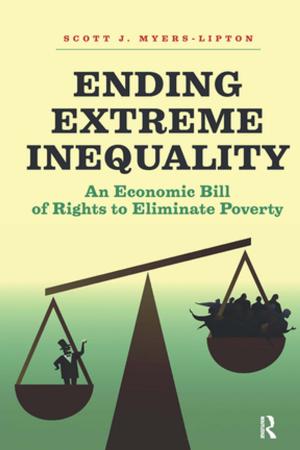Equal Time, Equal Value
Community Currencies and Time Banking in the US
Business & Finance, Economics, Free Enterprise| Author: | Ed Collom, Judith N. Lasker | ISBN: | 9781317141877 |
| Publisher: | Taylor and Francis | Publication: | May 23, 2016 |
| Imprint: | Routledge | Language: | English |
| Author: | Ed Collom, Judith N. Lasker |
| ISBN: | 9781317141877 |
| Publisher: | Taylor and Francis |
| Publication: | May 23, 2016 |
| Imprint: | Routledge |
| Language: | English |
Equal Time, Equal Value is the first systematic investigation of Time Banking in the United States. Drawing upon detailed case studies and making use of a mix of qualitative and quantitative data this book explores the most popular type of what has been called 'community currencies', in which localized systems based on time or dollar equivalents act as the medium of exchange. As such, it offers rich insights into the challenge presented by Time Banking to both the traditional social service and economic models, through the creation of an environment of reciprocity in which everyone's work has equal value. Locating Time Banking within the context of community currencies more generally and investigating the particular characteristics that are central to the production of positive outcomes, Equal Time, Equal Value examines the organizational characteristics of Time Banks, as well as the motivations of members, types and patterns of exchanges, and the effects on members of Time Bank participation in the USA. A timely and detailed exploration of exchange systems at a time of rising unemployment and declining confidence in global economic structures, this book will appeal to sociologists, cultural geographers and anthropologists with interests in social movements, the sociology of work, health promotion and policy, inequality and questions of the creation of community and sustainability.
Equal Time, Equal Value is the first systematic investigation of Time Banking in the United States. Drawing upon detailed case studies and making use of a mix of qualitative and quantitative data this book explores the most popular type of what has been called 'community currencies', in which localized systems based on time or dollar equivalents act as the medium of exchange. As such, it offers rich insights into the challenge presented by Time Banking to both the traditional social service and economic models, through the creation of an environment of reciprocity in which everyone's work has equal value. Locating Time Banking within the context of community currencies more generally and investigating the particular characteristics that are central to the production of positive outcomes, Equal Time, Equal Value examines the organizational characteristics of Time Banks, as well as the motivations of members, types and patterns of exchanges, and the effects on members of Time Bank participation in the USA. A timely and detailed exploration of exchange systems at a time of rising unemployment and declining confidence in global economic structures, this book will appeal to sociologists, cultural geographers and anthropologists with interests in social movements, the sociology of work, health promotion and policy, inequality and questions of the creation of community and sustainability.















